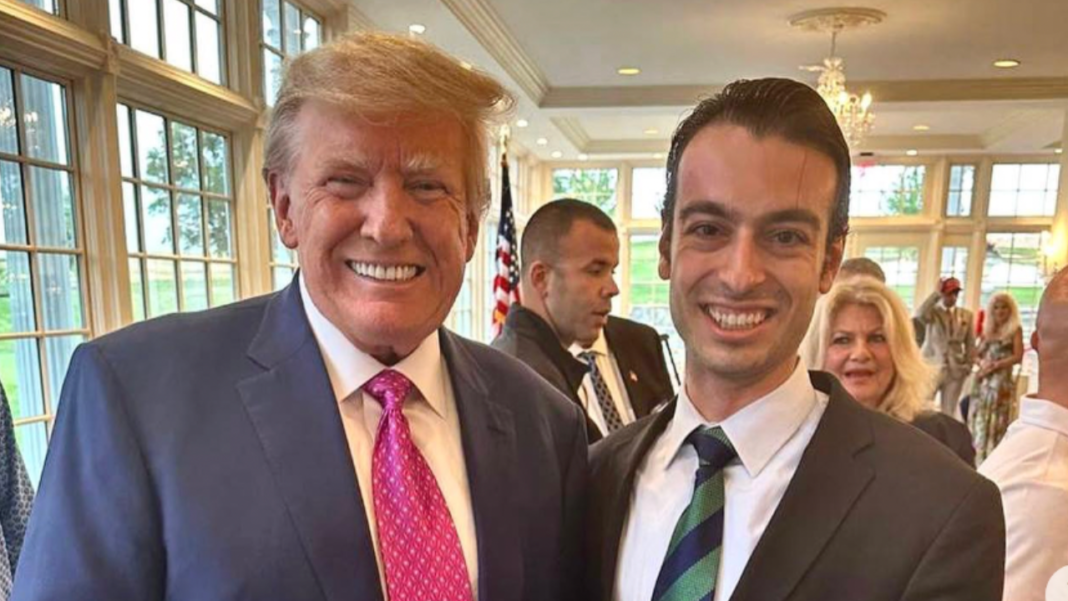The nomination of President Donald Trump‘s pick to lead the U.S. Office of Special Counsel, Paul Ingrassia, has taken a dramatic turn following the release of leaked text messages that reveal deeply troubling racist sentiments. The fallout from these revelations has sparked widespread controversy and raised questions about the integrity of the nomination process.
Ingrassia’s messages, disclosed through a detailed report by Politico, include inflammatory comments about historical figures and events, notably disparaging the legacy of Dr. Martin Luther King Jr. He brazenly stated that the federal holiday honoring King should be in “hell,” indicating a profound disrespect for the civil rights leader and his contributions to American society.
In a group chat consisting of GOP operatives and influencers, he made several derogatory remarks. Ingrassia claimed, “MLK Jr. was the 1960s George Floyd and his ‘holiday’ should be ended and tossed into the seventh circle of hell where it belongs.” Such comparisons not only draw a controversial line between two pivotal figures in the fight against racial injustice but also reflect a dismissive attitude towards ongoing struggles for equality.
Equally shocking are his references to various Black American holidays. He denounced these observances by saying, “No moulignon holidays” — utilizing a highly offensive Italian slur for Black people — and labeled occasions from Kwanzaa to Juneteenth as worthy of elimination. This rhetoric paints a disturbing picture of a young staffer currently serving as a White House liaison at the U.S. Department of Homeland Security.
Ingrassia did not stop there. His derogatory sentiments extended to the African continent, which he infamously referred to as a “s–thole,” echoing a phrase previously attributed to President Trump during his first term. His exact words were, “Proof: all of Africa is a shithole, and will always be that way,” further illustrating his dismissive and prejudiced views on race and geography.
The conversations reveal an unsettling belief in inherent racial victimhood. When discussing perceptions among Republicans that Democrats make Black people into victims, he claimed, “Blacks behave that way because that’s their natural state … You can’t change them.” Such assertions reflect a dangerous mindset that perpetuates stereotypes and undermines the legitimate struggles of marginalized communities.
Ingrassia even hinted at having a “Nazi streak,” a troubling statement that raises serious concerns about his fitness for a role where he would be responsible for overseeing whistleblower complaints and discrimination claims within the federal workforce.
In light of these explosive revelations, his defense has been somewhat lukewarm. An attorney for Ingrassia stated to Politico, “We do not concede the authenticity of any of these purported messages,” implying that they might have been tampered with or taken out of context. This defense, however, does little to assuage the concerns surrounding his nomination.
Ingrassia is set to face a Senate confirmation hearing, a pivotal moment that could determine his future in the Special Counsel’s office. However, even before the hearing, the nominee is under fire not only for his racist comments but also for facing an internal investigation regarding alleged sexual harassment. His previously controversial statements made as a far-right commentator have also resurfaced, including calls to declare the January 6 insurrection a national holiday.
The nomination appears to be encountering significant hurdles. Republican Senate Majority Leader John Thune indicated that Ingrassia lacks sufficient votes for confirmation. This flow of opposition underscores a broader spectrum of concern regarding the values and viewpoints represented by the current administration and its appointees.
As scrutiny intensifies, Ingrassia’s leaked messages are indicative of a troubling trend within segments of the Republican Party, particularly among its younger members. Just days prior, another group of young Republican leaders was also called out for engaging in racist, sexist, and violent text exchanges. This growing narrative has propelled discussions about the values upheld by those looking to reshape the party’s image amidst the ongoing cultural and political debates in the United States.



